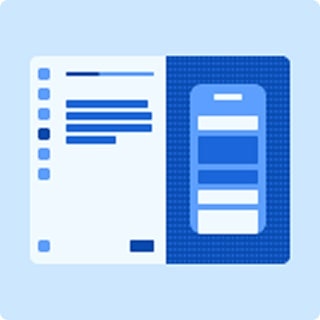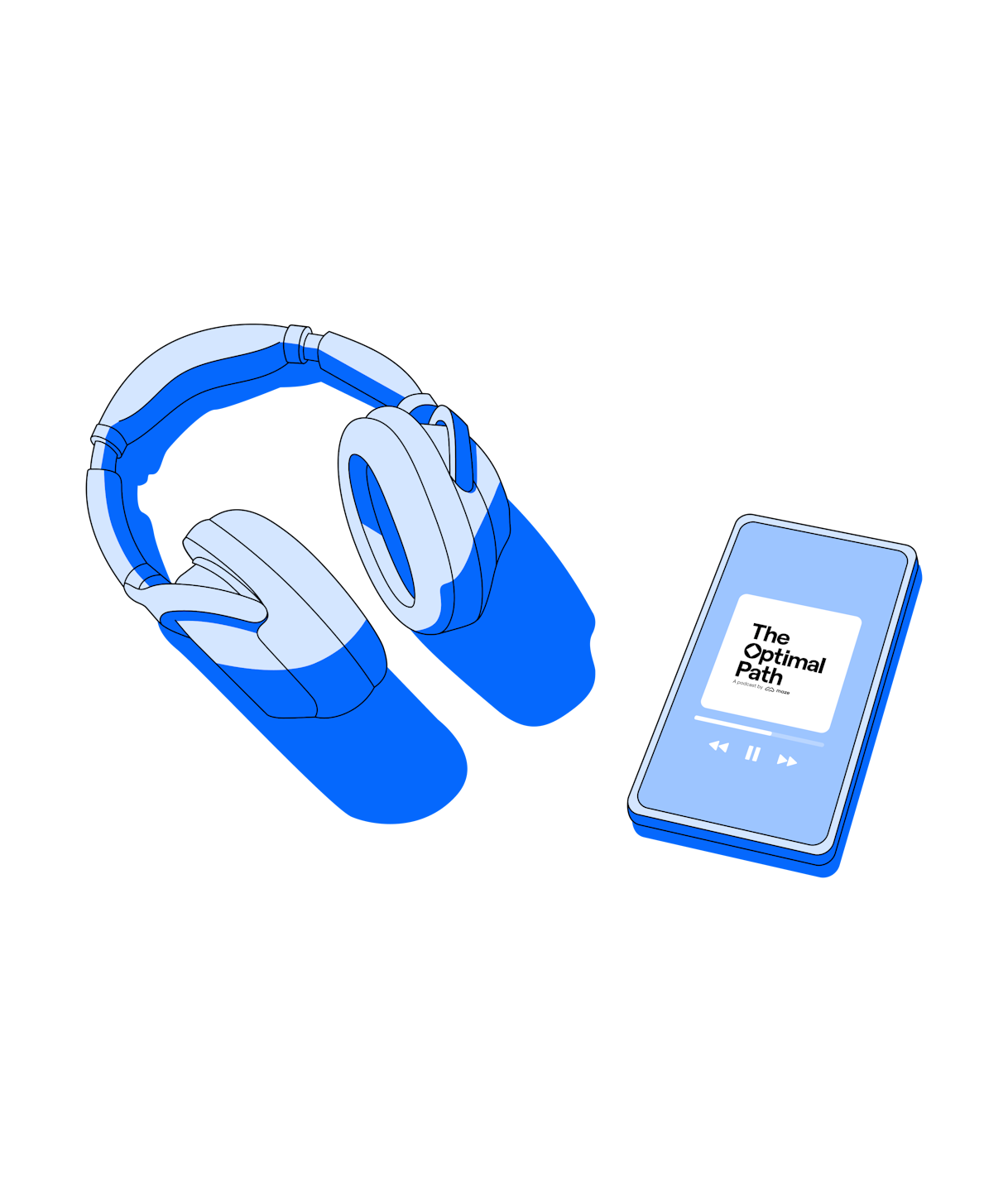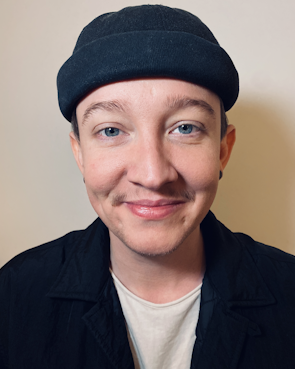We’ve recently revisited The Optimal Path podcast archives to spotlight the main topics shaping the future of user research, design, and product development.
The themes that emerged from our conversations with industry leaders—customer-centricity, scaling research, and ethics and inclusive design—are more relevant than ever as we head into 2025.
Whether you’re looking for practical strategies or fresh perspectives to elevate your work, these episode takeaways offer inspiration for every stage of your UX journey. Plus, don’t miss our curated list of guest-recommended books—perfect for your holiday reading or gifting.
Discover how today's leading organizations leverage user research to inform better product decision-making. Listen to all episodes of The Optimal Path.
Customer-centricity: Aligning teams around a common goal
Research insights as a strategic differentiator
Benjamin Humphrey, CEO and Co-founder at Dovetail, explores the rise of customer-centricity and the evolving role of user research in product development:
“Execution is no longer how you differentiate these days—that's getting easier and easier thanks to technology. It’s more about building the right thing for the right person. If you can be more customer-focused than your competitors, you’ll win.”
Benjamin underscores how research insights can serve as valuable intellectual property for companies, turning customer understanding into a sustainable competitive advantage.
Customer experience is a collective responsibility
What does it really take to become a customer-centric company?
According to Jehad Affoneh, Chief Design Officer at Toast, being a customer-centric, experience-led company is less about the function and more about the outcomes we want to deliver to our customers.
"The experience may be designed by a design or customer experience team but it’s influenced by many different departments. If you're part of the design or research team, one of the most powerful things you can do is define customer experience as something everybody owns."
Jehad describes Toast’s guiding principle for decision-making, rooted in prioritizing outcomes for customers, the business, teams, and individuals—in that order. “It’s a forcing function to make the right decisions. The best outcomes for customers and the business are often the best outcomes for the team too.”
Scaling user research: From empathy to organizational impact
Cultivating a learning culture
Roy Opata Olende, former Head of UX Research at Zapier, explores the different modalities of learning that take place inside organizations and how to embed curiosity into company culture.
To align research with every level of the company, Roy introduces the concept of UX research altitudes:
- High-altitude research connects with executives and directors and supports long-term planning and company strategy
- Mid-altitude research guides leaders overseeing initiatives across multiple teams like annual planning and roadmaps
- Low-altitude research relates to a single team and focuses on feature development and execution
According to Roy, “Research adds the most value at higher altitudes where directional and strategic decisions are made. But to get there, you often need to prove its value through smaller wins.” His “menu of learning” provides a framework for scaling research efforts and impact across teams.
Enabling teams to take part in research
Looking at the research transformation journey at Zendesk, Head of UX Research Reggie Murphy reflects on scaling research through democratization:
"Not only are we interested in building and shipping great features to help our customers win, but we're also interested in understanding their problems and how we can best solve them—and that's done through research. Democratizing our work is in service to that. We're going to develop the best tools we can to help others in the company run research."
"Conducting research isn't the only way a UX researcher can have value at a company. Our cross-functional partners want strategic guidance about which way they should move. That's how you become a true partner and move beyond the research requests framework.
By fostering a culture of learning and empowering teams to leverage research tools, Zendesk has built a scalable and impactful research practice, elevating it from a supporting function to a strategic partner within the business.
Ethics and inclusive design: Building better products for all
Tackling assumptions head-on
Product teams operate at the intersection of creativity and problem-solving. However, every decision is inherently influenced by the experiences, beliefs, and biases of the people building the product. By identifying assumptions early in the design and research process, teams can avoid gaps in understanding users that might otherwise limit their ability to build a successful solution.
Whether assumptions are based on cultural norms, technological use or experience, or even physical abilities and lived experiences, failing to surface them can result in products that miss the mark.
Melanie Buset, former Senior UX Researcher at Spotify, shares a method for challenging assumptions within teams and building more ethical research practices:
“An assumption slam gets all your assumptions out in the open. Mapping them by risk and uncertainty helps identify where more research is needed before moving forward. This collaborative practice enables cross-functional teams to navigate complex problems with clarity and confidence.”
Inclusive design in action
Samuel Proulx, Accessibility Evangelist at Fable, advocates for integrating inclusive practices throughout design and technology:
“Inclusive design means designing collaboratively with people of different ages, experience levels, and cultures to come up with solutions that work for them. It’s about collaborating and ideating with diverse voices—not just in your research process but within your design team and company culture.”
Looking ahead, Samuel emphasizes the importance of prioritizing inclusive design and accessibility in emerging technologies like AI and VR: “We need to consider accessibility now to ensure we’re prepared as these technologies become mainstream.”
Recommended reads for UX and product practitioners
On The Optimal Path, host Ash Oliver invites each guest to share their top industry-related book recommendations. Below is a curated list of must-read titles from every episode to date—designed to inspire your professional growth.
“What is the industry-related book that you've either given or recommended the most?”
Human behavior and decision-making
Books that explore how humans think, behave, and make decisions.
- David Hoang - The Humane Interface: New Directions for Designing Interactive Systems by Jef Raskin
- Erika Hall & Josh Morales - Behave: The Biology of Humans at Our Best and Worst by Robert M. Sapolsky
- Pulkit Agrawal - Nudge: Improving Decisions About Health, Wealth, and Happiness by Richard Thaler, Cass Sunstein
Research practice and the role of the researcher
Books focused on methodologies, mindsets, and the impact of research on creating human-centered products.
- Behzod Sirjani & Paige Bennet - The Field Study Handbook by Jan Chipchase
- Julian Della Mattia - Just Enough Research: 2024 Edition by Erika Hall
- Hannah Anokye - Interviewing Users: How to Uncover Compelling Insights by Steve Portigal
- Roy Opata Olende & Michael Margolis - Research Practice: Perspectives from UX researchers in a changing field by Gregg Bernstein
- Roberta Dombrowski - Continuous Discovery Habits by Teresa Torres
- Jonathan Widawski - The Mom Test by Rob Fitzpatrick
Leadership and organizational culture
Books that explore leading and organizing teams for companies to thrive.
- Gabriel Valdivia - Team Human by Douglas Rushkoff
- Jasmine Friedl - Just Work: How to Root Out Bias, Prejudice, and Bullying to Build a Kick-Ass Culture of Inclusivity by Kim Scott
- Reggie Murphy - The Fearless Organization by Amy C. Edmondson
- Jehad Affoneh - Switch: How to Change Things When Change Is Hard by Chip and Dan Heath
- Anton Sten - Company of One: Why Staying Small Is the Next Big Thing for Business by Paul Jarvis
- Sander Viegers - The Hard Thing About Hard Things by Ben Horowitz
Innovation and problem-solving
Books that uncover creative techniques to solve complex challenges and build innovative solutions.
- Devin Harold - A Beautiful Constraint: How To Transform Your Limitations Into Advantages by Adam Morgan
- Jeremy Le Van - Sprint by Jake Knapp
- Dalia El-Shimy - Gamestorming by Dave Gray, Sunni Brown, James Macanufo
- Melanie Buset - A More Beautiful Question: The Power of Inquiry to Spark Breakthrough Ideas by Warren Berger
- Bob Baxley - Creative Selection by Ken Kocienda
- Andy Budd - The Cold Start Problem by Andrew Chen
Personal growth and career philosophy
Books on establishing guiding principles and navigating work and life.
- Ravi Mehta - Principles: Life and Work by Ray Dalio
- Aiswarya Kolisetty - The Power of Now by Eckhart Tolle
- Brian Lovin - Orbiting the Giant Hairball: A Corporate Fool's Guide to Surviving with Grace by Gordon MacKenzie
- Renato Valdés Olmos - Managing Oneself by Peter F. Drucker
- Teresa Torres - Decisive: How to Make Better Choices in Life and Work by Chip and Dan Heath
- Benjamin Humphrey - Legacy: What the All Blacks Can Teach Us About the Business of Life by James Kerr
- Dave Hora - The Nature of Order Series by Christopher W. Alexander
Additional reading
Books offering fresh ideas and insights across technology, design, and communication.
- Marcus Brandford - The Dream Machine by Mitchell Waldrop
- Nick Stiles - How to Write Short by Roy Peter Clark
- Amy Lima - Mismatch: How Inclusion Shapes Design by Kat Holmes
- Samuel Proulx - The End of Average: How We Succeed in a World That Values Sameness by Todd Rose
Learn how industry leaders harness user insights for success
Dive into our podcast episodes and subscribe to The Optimal Path newsletter to be the first to know when new episodes air. Tune in.





